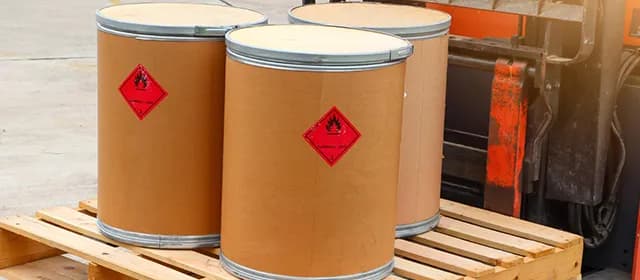In the complex and dynamic realm of oil exploration and production, a crucial behind-the-scenes player takes center stage: oilfield chemicals. These specialized substances form an indispensable toolkit, enabling the industry to maximize efficiency, enhance extraction, and ensure the smooth operation of critical processes. From drilling to reservoir management, oilfield chemicals play a pivotal role in optimizing production, safeguarding equipment, and addressing various challenges inherent to the extraction of this vital global resource.
In this blog, we will explore oilfield chemicals and their importance while examining the problems they face.
What are Oilfield Chemicals?
Oilfield chemicals are vital in the oil & gas industry. They help extract petroleum resources smoothly and efficiently. Special chemicals are used to improve production, protect equipment, and address challenges in drilling and production operations.
According to Kings Research, the global Oilfield Chemicals Market is projected to reach USD 39.68 billion by 2030, growing at a CAGR of 4.05% from 2023 to 2030. This number is a clear indication of the immense potential the market holds.
Here's a closer look at some of the prominent types of these chemicals.
- Corrosion Inhibitors:
Corrosion inhibitors are chemicals that help prevent or reduce corrosion on metal surfaces in oilfield equipment and pipelines.
Corrosion inhibitors come in different types, such as organic, inorganic, and mixed inhibitors. They create a protective layer on metal surfaces to stop rust and corrosion.
- Scale Inhibitors:
Scale inhibitors are chemicals that prevent or control the formation of mineral scales. These scales, like calcium carbonate and calcium sulfate, can build up and limit the flow in wells and equipment.
Popular types of scale inhibitors include phosphonates, polyphosphates, and acids. They work by using chemicals to break up or trap minerals that cause scale, stopping them from forming and building up.
- Biocides:
Biocides are used to control the growth of bacteria, fungi, and other microorganisms in oilfield systems. They help prevent issues like equipment fouling, pipeline blockages, and reservoir souring.
In oilfields, biocides such as oxidizing agents, halogens, and organic substances are used. They kill or stop the growth of tiny organisms, making sure the oilfield is clean and works well.
- Surfactants:
Surfactants, also called surface-active agents, are chemicals that change the tension between oil, water, and solid surfaces. To improve the ability of the reservoir to release trapped hydrocarbons and increase oil recovery rates, they enhance the reservoir. \
Anionic, cationic, and nonionic surfactants are often used in oilfield applications. They reduce capillary forces that hold oil in rocks, making them easier to extract.
- Clay Stabilizers:
Clay stabilizers are chemicals. They are used to prevent clay swelling and dispersion. These clays are found in reservoir formations, drilling mud, and completion fluids. They ensure the integrity of wellbores and prevent the loss of drilling fluids.
Role of Oilfield Chemicals in the Oilfield Industry
Oilfield chemicals are important in the oil & gas industry. They help make oilfield operations more efficient and productive. These chemicals are made for different challenges in exploration, drilling, production, and refining. To improve operations, increase productivity, and ensure safety, companies in the oilfield industry need to understand the role of these chemicals.
- Enhancing Oil Recovery
These chemicals have a key role in improving oil recovery from reservoirs. To maximize oil production, Enhanced Oil Recovery (EOR) methods are used. These methods include water flooding, gas injection, and chemical injection. Chemicals such as surfactants, polymers, and alkaline agents are used to change the properties of the reservoir. This helps improve the flow of oil, leading to a higher recovery rate.
- Corrosion Mitigation
Corrosion can damage oilfield equipment. This damage can be costly to repair and can cause production downtime. Oilfield chemicals with corrosion inhibitors are used to protect metal parts in oilfield operations. These parts include pipelines, tanks, and well casings, and they are exposed to corrosive substances. These inhibitors create a layer that protects metal surfaces. This layer stops corrosion and makes the equipment last longer.
- Wellbore Damage Prevention
Wellbore damage can happen during drilling and production activities. Factors such as formation damage, scale deposition, and clay swelling can cause this. To ensure the best conditions for drilling, oilfield chemicals like drilling fluids and completion fluids are used to reduce problems. These chemicals assist in stabilizing the wellbore, preventing damage to the formation, reducing fluid loss, and increasing drilling efficiency.
- Scale and Wax Control
Scale and wax buildup can block the flow of oil and decrease production in oil wells and equipment. If not addressed, it can even lead to equipment failure. Oilfield chemicals are used to prevent the formation of scale and wax.
Applications for Corrosion Inhibitors, Demulsifiers, and Anti-Corrosion Agents
Especially in offshore drilling and wells, a significant portion of the oil that is produced in the oilfield typically contains a large volume of water that mixes with the oil naturally or during the oil drilling process. To cleanse the water and lessen the corrosion of the pipelines and containers that transport the oil, it is crucial to separate the oil from the water. In the oilfield, demulsifiers are applied for this purpose. Demulsifiers function by altering the density of the oil, which facilitates the separation of the two chemicals while also minimizing pipeline corrosion, which could otherwise result in increased equipment maintenance costs.
Oilfield pipeline corrosion will result in losses and greater maintenance expenses. Oxygen, carbon dioxide, or hydrogen sulfide attacks can lead to corrosion in oilfield pipes, corrosion inhibitors are a solution for this. As the name suggests, these inhibitors function by interacting with corrosion agents like oxygen and rendering them inert inside the containers. Chemicals known as anti-corrosion agents shield the pipelines' coatings from corrosion agents so that they don't come in touch with them. This helps maintain the pipelines and reduces the need for maintenance and the cost of purchasing new containers and pipelines.
To Sum It Up
Oilfield chemicals play a vital role in the oil & gas industry, contributing to the efficiency, productivity, and overall success of drilling, production, and exploration operations. These specialized chemicals are designed to address various challenges and requirements, from enhancing drilling fluid performance to improving oil recovery and reservoir stimulation in the oilfield.s
The use of these chemicals helps mitigate issues such as corrosion, scaling, emulsion formation, and microbial growth, which can negatively impact equipment, production rates, and overall profitability. By employing effective chemical solutions, operators can optimize well performance, reduce downtime, and extend the lifespan of infrastructure.
The development and application of innovative oilfield chemicals continue to evolve as the industry faces new challenges and seeks to maximize production from existing reserves. Ongoing R&D efforts are focused on eco-friendly and sustainable solutions to minimize environmental impact while maintaining operational effectiveness, ensuring a greener future for the sector.




